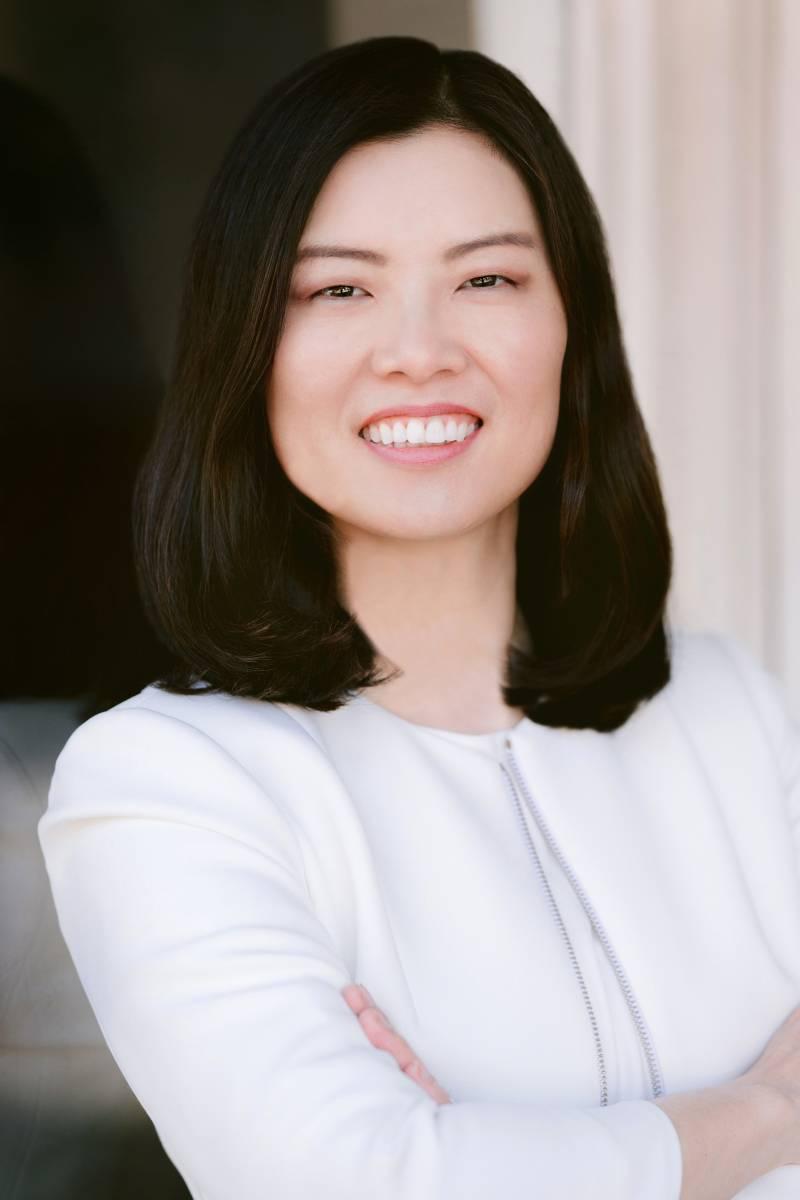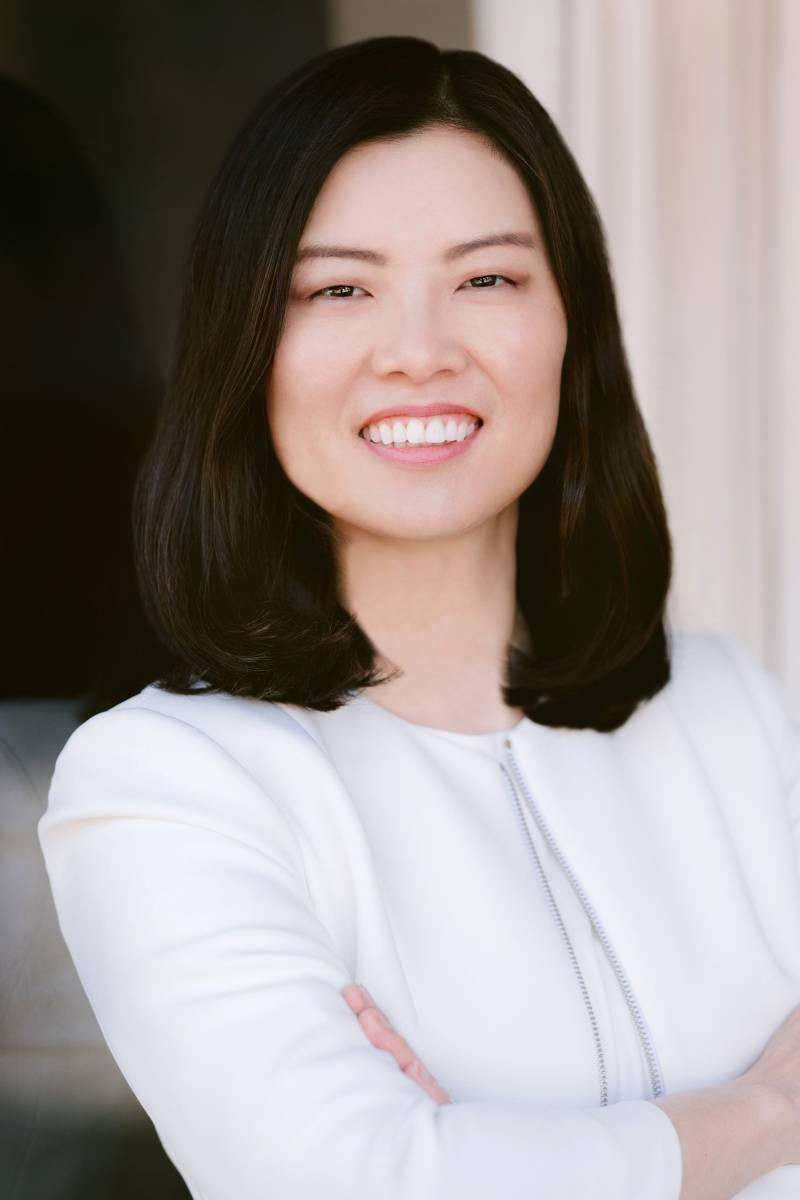
Businesses across the world are quickly being shaped and redefined by new applications in artificial intelligence (AI). Sophia Velastegui (B.S., ME) is playing an integral role in the development of AI across different business units at Microsoft. She is currently serving as the chief technology officer for operation applications at Microsoft. Velastegui has received numerous awards and accolades for her contributions to the technology industry, including being recognized by Business Insider as one of the 'Most Powerful Female Engineers in the World' for her work in advanced technology at Google and then again for her work in AI at Microsoft. We sat down and asked her a few questions about her experience as an engineer and just what the future decade holds for AI.
Where are you from?
I was born in South Korea, but since my parents moved with me to New York City when I was one, I consider myself a New Yorker.
What is your degree from Tech? Any other engineer degrees we should know about?
I earned my B.S. in Mechanical Engineering from Georgia Tech. I then went on to UC Berkeley and earned my M.S. in Mechanical Engineering, specializing in Materials. After that, I completed executive education programs at Harvard Business School and Stanford Law.
What is your current job at Microsoft?
I’m the Chief Technology Officer, AI in Operation Applications, Enterprise SaaS applications to help you run your entire business and deliver greater results through predictive, AI-driven insights.
What’s a day in the life like for you working for a big tech company?
Well, no two days are the same. But every day I work with amazing people and customers to solve challenging problems through the power of artificial intelligence and other emerging technology. I’m fortunate to be surrounded by brilliant people who all work together in solving complex problems in industries as diverse as food services to manufacturing to healthcare and more.
In the coming decade, where do you see AI heading?
I see every industry expediting the adoption of AI to analyze data across their businesses to develop new insights and predictions, and to create automated processes and intelligent services. The speed of it can be captured on what we at Microsoft call “tech intensity.” This means a holistic effort to infuse available technology into all operations. Fortunately, any degree from Georgia Tech will position you well to take advantage of the opportunities unleashed by that trend.
What do the ‘20s hold for large technology companies like Microsoft?
I’m part of Microsoft’s Business Application Group, and right now we’re focused on the ways in which people interact with their data in the cloud thru SaaS applications. Improving and facilitating those interactions will redefine and augment how businesses are run. By 2030, there will be 50 billion connected devices in the world, so we’re preparing businesses to thrive in that environment.
How has your engineering degree helped you in your career at Microsoft?
Engineering teaches you to solve complex problems, to break systems down into their components. But it also takes grit, passion and perseverance in pursuing a long-term goal. My career has always centered on solving hard problems, even in management, and it’s that combination of problem-solving skills plus tenacity that has served me well.
At Tech, we are all about innovation. How are you innovative at Microsoft?
We are in the golden age of AI. And my job is to figure out new ways to bring AI into different business units and products. That in turn opens new capabilities and introduces entire new business models. New products are being introduced based on AI as we speak, from Dynamics 365 Fraud Protection to Supply Chain to Finance.
Where do you see yourself in five years?
I’d like to continue to solve challenging global problems, but, beyond that, I strive to increase my impact by tackling significant challenges like tech accessibility and equality.
What advice do you have for young engineers, especially women engineers, looking to work in big tech?
You need to take intentional risks. If you see a position and you meet 50 percent of the job requirements, go for it. You probably won’t get the job, but you’ll learn something through the process of trying. Beyond that, if you aren’t failing regularly, you aren’t trying hard enough. Be bold, but be strategic. When I decided to go from the semiconductor field to the leading consumer electronics company—Apple—many people said it couldn’t be done. But I tried, and I got feedback. I took that feedback and I pivoted, and within three years I landed at Apple as a product manager. Also, because I was strategic and intentional, I did this while increasing my work responsibility.
It’s also important to learn to be comfortable with negotiation and to excel at it. Take negotiating classes or, at a minimum, read about it. My favorite book is “Never Split the Difference” by Chris Voss. Conversation and life are about negotiation. Once you master it, you’ll be better positioned for success—and better compensated.
Finally, learn to be comfortable with data regardless of your degree or background. That could mean taking classes or volunteering for projects working with data scientists.
Bonus question: Do you have a piece of advice for those getting ready to start college, and what would you tell those who are about to graduate?
To High Schoolers: For those who are heading toward college, explore while you are in college. I was one class short of minoring in psychology because I found the subject fascinating. I find myself applying those learnings to my work interactions even now. As you explore the breadth of your interest, it will expose you to different perspectives, and that is the seed of innovation.
To Graduates: Don’t lose the curiosity of your youth. Cultivate that throughout your life. Learning does not end once you graduate from college. You learned the methods of learning—now apply them throughout your life. As Bill Frist says, “Education brings about opportunity, and in turn, inspiration.” That doesn’t mean you have to get another degree. The world is full of opportunities to learn.
